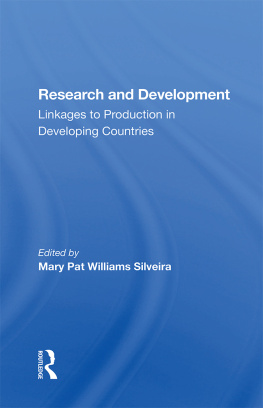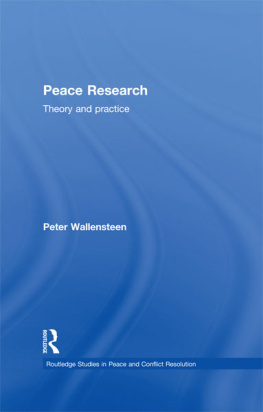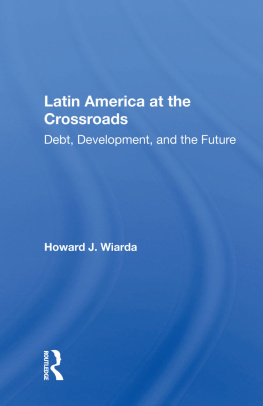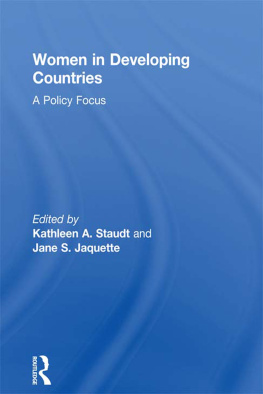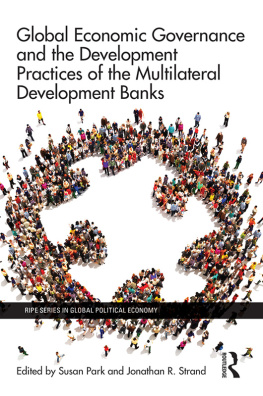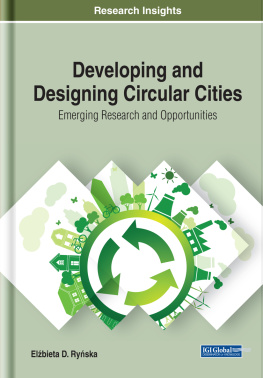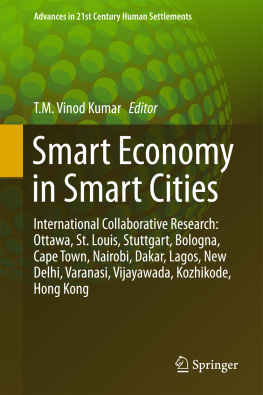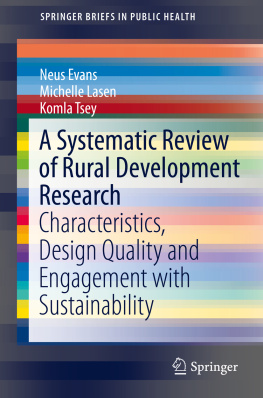Research and Development Linkages to Production in Developing Countries
Also of Interest from Westview Press
Development as Social Transformation: Reflections on the Global Problematique, edited by Jrgen Heinrichs
Applied Methods of Regional Analysis: The Spatial Dimensions of Development Policy, Dennis A. Rondinelli
Science and Technology for International Development: An Assessment of U.S. Policies and Programs, Robert P. Morgan
Man and Technology: The Social and Cultural Challenge of Modern Technology, edited by Bruce M. Adkins
Export-Oriented Development Strategies: The Success of Five Newly Industrializing Countries, edited by Vittorio Corbo, Ann O. Krueger, and Fernando Ossa
Public Participation in Development Planning and Management: Cases from Africa and Asia, edited by Jean-Claude Garcia-Zamor
Participatory Development, Sheldon Gellar
About the Book and Editor
While many developing countries rapidly expanded their scientific and technological capabilities during the 1960s and 1970s, the current international economic crisis has severely threatened these programs and the developing world has staggered under its debt burden. These economic difficulties highlight the need to utilize effectively the limited scientific and technological resources available. In this volume, an international group of experts explore ways to organize research and development programs; create flexible and appropriate linkages to promote supplier-user interactions at national, regional, and international levels; and design policy instruments to encourage and finance research and development. Three case studies illustrate all these aspects of research and development. The contributors also outline suggestions for pioneer projects in such areas as a technological services delivery system for small industries; a local technology system for rural areas; a fund-syndicating technology delivery system for later enterprises and investors; linkages to improved productivity in under-utilized capacity; and identifications of needs in the least-developed countries.
Mary Pat Williams Silveira is scientific affairs officer at the UN Centre for Science and Technology for Development and is currently on loan to the United Nations Development Programme in Mozambique. She is coauthor of Scientist and World Order: The Uses of Technical Knowledge in International Organizations (1977) and Science, Technology, and Global Problems (1979).
Published in Cooperation with the United Nations Centre for Science and Technology for Development
Other Books in the United Nations Science and Technology for Development Series
Science and Technology Indicators for Development, edited by Hiroko Morita-Lou
Research and Development
Linkages to Production in Developing Countries
edited by Mary Pat Williams Silveira
First published 1985 by Westview Press
Published 2019 by Routledge
52 Vanderbilt Avenue, New York, NY 10017
2 Park Square, Milton Park, Abingdon, Oxon OX14 4RN
Routledge is an imprint of the Taylor & Francis Group, an informa business
Copyright 1985 by the United Nations
All rights reserved. No part of this book may be reprinted or reproduced or utilised in any form or by any electronic, mechanical, or other means, now known or hereafter invented, including photocopying and recording, or in any information storage retrieval or system, without permission in writing from the publishers.
Notice:
Product or corporate names may be trademarks or registered trademarks, and are used only for identification and explanation without intent to infringe.
Library of Congress Catalog Card Number: 85-50985
ISBN 13: 978-0-367-28572-2 (hbk)
Contents
, Amilcar F. Ferrari
, Rodney W Nichols, Francisco Sagasti
PART ONE
REPORT OF THE AD HOC PANEL OF SPECIALISTS ON THE REINFORCEMENT OF LINKAGES BETWEEN RESEARCH AND DEVELOPMENT AND THE PRODUCTION SYSTEM
PART TWO
R&D ACTIVITIES: PROGRAMME FORMATION AND PROGRAMME PROMOTION
, Rodney W. Nichols
, James P. Blackledge
, Clovis Walter Rodrigues
, Christian de Laet
PART THREE
MECHANISMS FOR PROMOTING AND INSTITUTIONALIZING INTERACTION
, M. A. Hamden
, Eiliv Sdahl
, M. C. Cezimbra
, Arthur M. Alvendia
, Danielle Mazzonis
, James P. Blackledge
, Hans-Georg Lindgren
, Leon V. Chico
, W. H. Tanaka
PART FOUR
POLICY AND FINANCING MECHANISMS
, James P. Blackledge
, Akin Adubifa
, Adel A. Sabet
, Fernando M. Machado
, Laszlo Teke
PART FIVE
CASE STUDIES
, K.K.G. Menon
, O. A. Koleoso
, Gustavo Flores Guevara
PART SIX
PIONEER PROJECTS
The principal basis for all of the activities of the United Nations Centre for Science and Technology for Development is the Vienna Programme of Action on Science and Technology for Development, adopted by the General Assembly in 1979 on the basis of the recommendations of the United Nations Conference on Science and Technology for Development. The emphasis of the Vienna Programme is not on any particular discipline or sector of science and technology, but rather on the convergence of a number of horizontal issues with the potential to have a major impact on development through science and technology, such as the linking of research and development activities with production. Underlying these issues is the overriding objective of strengthening the scientific and technological capacities of developing countries.
Undoubtedly, the magnitude of efforts required for accomplishing the goals set by the Vienna Programme are complex and enormous. The responsibility for this task has been given to the Intergovernmental Committee on Science and Technology for Development, which is a subsidiary body of the General Assembly and open to all States as full members. In this respect, one of its first steps was to adopt an Operational Plan as a framework for further actions for the implementation of the Vienna Programme.
The proposals in the Operational Plan require continuous efforts to define, elaborate and specify a wide range of choices. In this process, the Intergovernmental Committee has the benefit of the views of the Advisory Committee on Science and Technology for Development, whose membership includes 28 distinguished persons serving in their individual capacities.
In dealing with the complex set of ideas relating to the implementation process, an approach adopted by the Advisory Committee is to disaggregate some of the issues into a series of component topics for in-depth consideration by a small panel of specialists such as the one represented in these proceedings on the reinforcement of linkages between research and development activities and the production system.
This panel was the fifth in a series which began in December 1982, with the convening of a panel on the integrated application of emerging and traditional technologies for development, in Los Baos, the Philippines. In January of 1983 the second panel met in Kuwait to consider human resources development for management of science and technology in developing countries. The third panel met in Tunis, Tunisia in April of the same year to discuss the role of regional associations and organizations on strengthening research and development and in the popularization of science and technology in developing countries. And, in September of 1983, the fourth panel was convened at Mount Holyoke College, South Hadley, Massachusetts, in the United States, on the subject of science and technology and women. In addition, future panels envisaged at this time include one on the question of measurement of the impact of science and technology on development objectives (Graz, Austria); long term perspectives on science and technology for development (Mbabane, Swaziland); scientific and technological information systems for development (Rome, Italy); and the mobilization of financial resources for scientific and technological development in developing countries (Islamabad, Pakistan).

